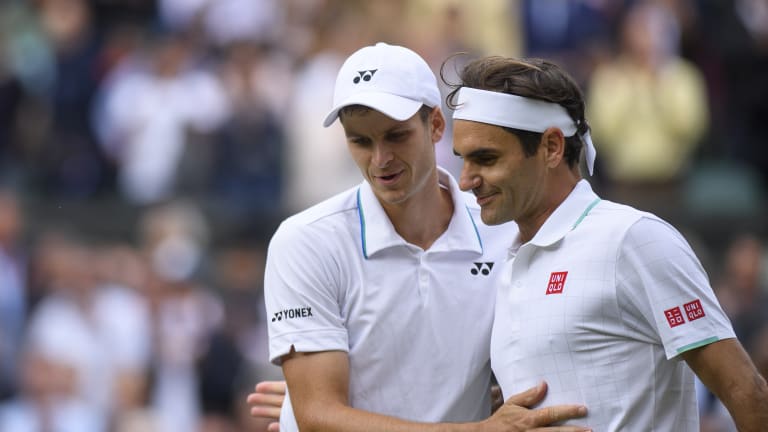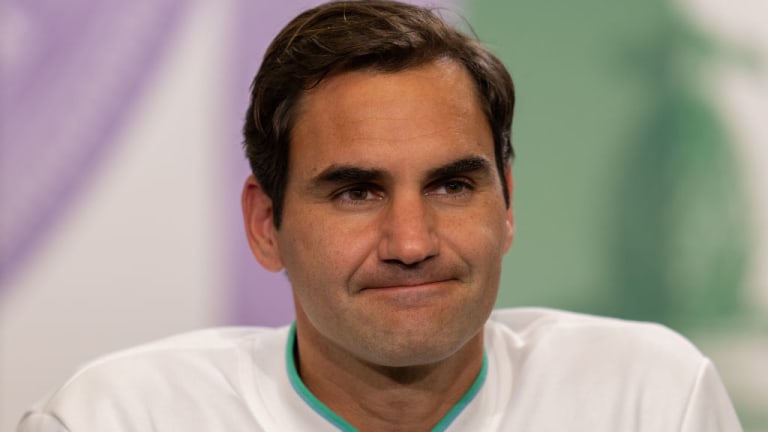Wimbledon
The Rally, Wimbledon Edition: Hubert Hurkacz's breakthrough win, Roger Federer's concerning loss, and what it all means
By Jul 07, 2021Wimbledon
Darren Cahill: Jannik Sinner watches more Carlos Alcaraz matches than he does with any other player
By Jul 14, 2025Wimbledon
Jannik Sinner reignites Carlos Alcaraz rivalry with Wimbledon victory
By Jul 14, 2025Wimbledon
Jannik Sinner reversed his usual pattern against Carlos Alcaraz. It won him Wimbledon
By Jul 14, 2025Wimbledon
Veronika Kudermetova and Elise Mertens win women's doubles title at Wimbledon
By Jul 13, 2025Wimbledon
Joy to the World: What Carlos Alcaraz has, and what we are enjoying
By Jul 13, 2025Wimbledon
Iga Swiatek keeps surprising herself after Wimbledon title caps "surreal" turnaround on grass
By Jul 12, 2025Wimbledon
Iga Swiatek wins first Wimbledon, sixth Grand Slam title with 6-0, 6-0 rout of Amanda Anisimova
By Jul 12, 2025Wimbledon
Wimbledon men's final preview: Will Carlos Alcaraz, Jannik Sinner share another epic?
By Jul 12, 2025Wimbledon
Julian Cash, Lloyd Glasspool become first all-British pair to win Wimbledon men's doubles title since 1936
By Jul 12, 2025The Rally, Wimbledon Edition: Hubert Hurkacz's breakthrough win, Roger Federer's concerning loss, and what it all means
It will be fascinating to see what the immediate and long-term future holds for both men after the 6-3, 7-6 (4), 6-0 result.
Published Jul 07, 2021
Advertising
Advertising

Roger Federer was bageled at Wimbledon for the first time ever on Wednesday.
© Getty Images
Advertising

"I'm actually very happy I made it as far as I did here and I actually was able to play Wimbledon at the level that I did after everything I went through," said Federer. "Of course I would like to play it again, but at my age you're just never sure what's around the corner."
© Getty Images